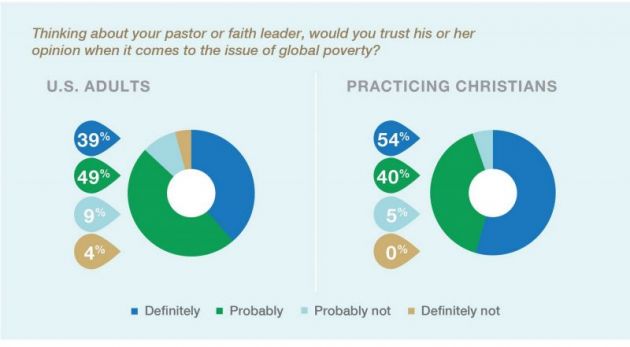Pastors in US are seen as a primary voice on poverty: Barna survey

U.S. pastors' thoughts concerning the world's poor are highly valued, a new study by Barna research shows pointing to a platform that is good news for church ministers.
A strong majority of the American public (88 percent), including 92 percent of practicing Christians, trusts the opinion of a pastor when it comes to the issue of global poverty.
That is alongside the opinions of individuals who have worked or lived in poverty and even ranking above the opinions of reporters, academics and politicians.
In some ways, the trust that the American public places in pastors' opinions of poverty presents an increasingly rare public platform for ministers.
Previous Barna research underscores a sort of "cultural credibility crisis" for pastors, showing that just one in five U.S. adults sees Christian clergy as very influential in their community at only 19 percent or as an esteemed voice on important issues of our day (21 percent).
"Yet pastors have incredible potential to lead the charge and position the U.S. Church as a powerful force in anti-poverty endeavors, whether they like it or not," says Barna.
The data in the report originated from a series of research studies conducted by Barna Group of Ventura, California.
Phone interviews and web-based surveys for U.S. Adults were conducted among a representative sample of adults over the age of 18 in each of the 50 United States.
Once data was collected, minimal statistical weights were applied to several demographic variables to more closely correspond to known national averages.
Protestant senior pastors were recruited from publicly available church listings covering 90 percent of U.S. churches.
Data were minimally weighted to match church characteristics from the National Congregation Study for denominational affiliation, church size and region said Barna.
The Barna Group is a private, non-partisan, for-profit organization under the umbrella of the Issachar Companies.
It is located in Ventura, California, and has been conducting and analyzing primary research to understand cultural trends related to values, beliefs, attitudes and behaviors since 1984.